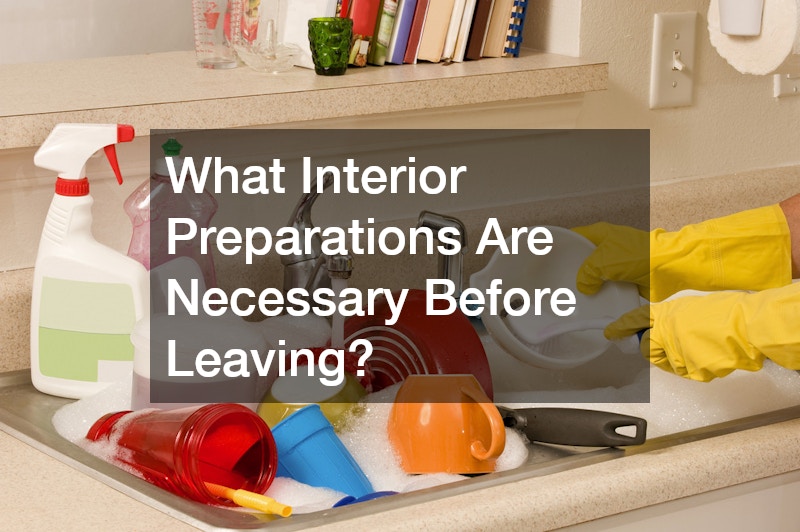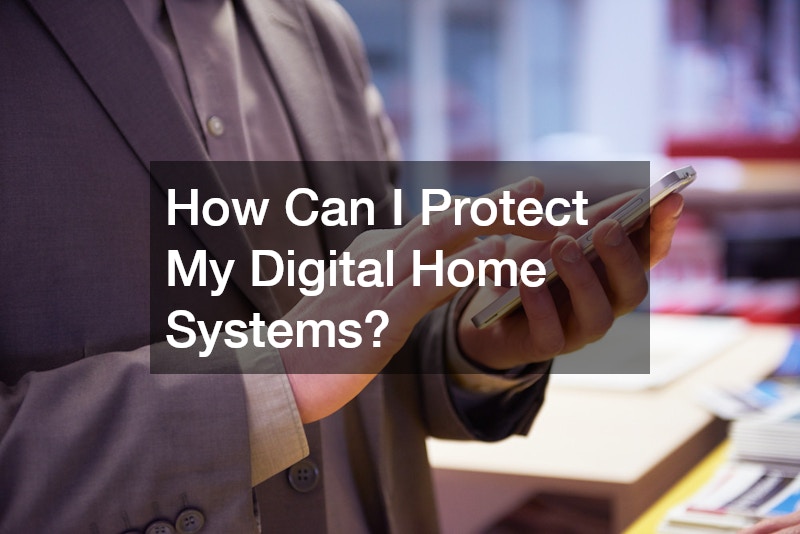Preparing your home for long-term travel requires a careful mix of strategic planning, organization, and practical actions. Whether you’re embarking on an extended vacation, relocating temporarily, or pursuing a long-term adventure, ensuring your home is secure and well-maintained during your absence is essential. Without the proper types of preparation, you may return to unexpected issues, such as financial problems, maintenance concerns, or even security breaches.
This article highlights the essential types of preparation necessary to ensure your home remains secure, well-managed, and in excellent condition while you’re away. From safeguarding your property and organizing finances to addressing utilities, exterior maintenance, and mail handling, every step you take before departure contributes to a worry-free experience. By implementing these measures, you can enjoy peace of mind knowing that your home is in good hands, allowing you to focus entirely on the journey ahead.
1. How Do I Ensure Home Security During Long-Term Travel?
1.1 Installing a Monitored Security System
A monitored security system provides unparalleled peace of mind while you’re away. These systems often include cameras, motion detectors, and alarms that are linked to a central monitoring service. If any unusual activity is detected, the service can notify you immediately and, if necessary, dispatch local authorities. Opt for systems that allow you to monitor your home remotely through a smartphone app for added convenience and control.
1.2 Smart Home Technology for Remote Monitoring
Smart home technology has revolutionized home security, making it more accessible and customizable. Smart locks, for example, allow you to lock or unlock doors from anywhere, while motion-activated cameras send alerts straight to your phone. Combining these devices with a smart home hub enables seamless management of your home’s security features, ensuring you stay in control no matter where you are.
1.3 Neighborhood Watch and Trusted Contacts
Building a relationship with your neighborhood watch group can provide added security during your absence. Inform them of your travel plans and provide an emergency contact number. Additionally, designate a trusted neighbor, friend, or family member to perform occasional checks on your property. This type of preparation not only deters potential intruders but also ensures any unexpected issues, such as storm damage, are identified quickly.
1.4 Regular Lighting and Presence Simulators
Homes that appear occupied are far less likely to attract burglars. Using timers for interior lights, outdoor lights, and even radios can mimic daily activity, creating the illusion of an active household. Consider investing in smart plugs that allow you to create random lighting schedules, making the simulation even more realistic.
1.5 Secure All Entrances and Valuables
Ensuring that all doors, windows, and entry points are properly secured is fundamental. Replace old or damaged locks, install deadbolts, and reinforce sliding doors with security bars. Store valuable items, such as jewelry, documents, or electronics, in a safe that is either hidden or bolted down. This simple yet critical preparation ensures your belongings are protected even in the rare event of a break-in.
2. What Are the Essential Steps for Financial Management?

2.1 Automating Bill Payments
Before leaving, ensure all recurring bills are set to auto-pay, including utilities, credit cards, and subscriptions. This avoids late payments and maintains essential services, such as heating and cooling service, while you’re away.
2.2 Setting Up a Travel Budget
Prepare a travel budget to avoid financial strain during your trip. Account for expenses like lodging, meals, transportation, and unexpected costs. Staying financially organized helps you enjoy your journey without worry.
2.3 Managing Property Taxes and Insurance
Verify that your property taxes and home insurance premiums are up to date. Contact your insurance provider to confirm coverage for an unattended home, and consider adding riders if needed.
2.4 Keeping Important Financial Documents Secure
Store critical financial documents, such as bank statements, insurance policies, and property deeds, in a safe or deposit box. Digital backups are also helpful for quick access.
2.5 Monitoring and Managing Subscriptions
Cancel or pause subscriptions for services you won’t use while traveling. Streaming platforms, gym memberships, or meal deliveries are common examples to consider.
3. How Can I Maintain My Home’s Exterior During an Extended Absence?
3.1 Scheduling Regular Yard Maintenance
One of the most important types of preparation for long-term travel is yard maintenance Arrange for regular yard work, including mowing, trimming, and tree care, to keep your property looking occupied. Overgrown grass and unkempt hedges can signal to burglars that a home is vacant.
3.2 Weatherproofing and Seasonal Preparations
Ensure your home is prepared for the season you’re leaving behind. Weatherproof windows and doors, and inspect roofing and gutters. Using a fertilizing service and securing necessary landscape supply items are crucial for maintaining a healthy yard.
3.3 Securing Outdoor Furniture and Equipment
Store outdoor furniture, grills, and equipment in a garage or shed to protect them from theft or damage. Use locks if necessary for added security.
3.4 Inspecting Roofing and Gutter Systems
Check your roofing for loose shingles and clean out gutters to prevent water damage or blockages. Addressing these issues beforehand reduces the risk of costly repairs.
3.5 Arranging for Snow Removal if Necessary
If you’re traveling during the winter months, arrange for snow removal services to clear driveways and walkways. This not only ensures safety but also maintains the appearance of an occupied home. Additionally, consider what landscape supply could be necessary for your lawn while you are absent.
4. What Interior Preparations Are Necessary Before Leaving?

4.1 Deep Cleaning and Organizing
Deep clean your home to prevent odors, pests, and mold from developing. Focus on commonly overlooked areas, like the refrigerator, under sinks, and closets.
4.2 Shutting Off Non-Essential Utilities
Turn off non-essential utilities, such as water supply to certain areas or gas to unused appliances. This reduces the risk of leaks or accidents.
4.3 Decluttering Perishables and Food Safety
Dispose of perishables from your pantry, refrigerator, and freezer. Leaving food behind can lead to unpleasant odors and attract pests.
4.4 Maintaining HVAC Systems
Regular HVAC maintenance is critical to ensuring your home remains in good condition during your absence. Pair this with other cleanliness-focused tasks, such as trash bin cleaning, to create a healthier home environment and prevent lingering smells or pest issues from developing while you’re away.
4.5 Pest Control Measures
Seal cracks, set traps, and use pest deterrents to keep critters out of your home. Consider professional pest control services for comprehensive treatment.
5. How Should I Handle Mail and Deliveries?
5.1 Temporarily Forwarding Your Mail
One of the often overlooked types of preparation is the mail. Redirect your mail to a trusted address or a family member to ensure you receive important correspondence while traveling.
5.2 Holding Mail at the Post Office
Alternatively, request a hold on your mail through the post office to prevent accumulation in your mailbox, which can indicate you’re not home.
5.3 Managing Package Delivery Schedules
Reschedule deliveries or pause subscriptions that ship items to your address. Some carriers also offer secure package pickup services.
5.4 Setting Up Email Notifications for Mail Updates
Many postal services provide email updates with images of incoming mail. This helps you stay informed about deliveries even when you’re away.
5.5 Arranging for Trusted Neighbors to Collect Mail
If forwarding or holding mail isn’t an option, ask a neighbor to collect it for you. This prevents a buildup of mail and ensures timely handling of important items.
6. What Types of Preparation Are Necessary for My Vehicles During Long-Term Travel?
6.1 Preparing Vehicles for Storage
If you plan to store your vehicle, clean it thoroughly, fill the gas tank, and add a fuel stabilizer. Protect it by storing it under a carport or in a garage.
6.2 Strategic Parking and Anti-Theft Precautions
Park your vehicle in a secure location, such as a garage, and install anti-theft devices. Ensure garage doors are locked and functioning properly.
6.3 Maintaining Insurance and Registration
Keep your vehicle insurance and registration up to date, even if it’s not in use. This ensures compliance with laws and protects you in case of unexpected incidents.
6.4 Options for Lending or Leasing Vehicles
If you’d like your vehicle to be used, consider lending it to a trusted friend or family member. Alternatively, explore leasing options to earn income.
6.5 Regular Vehicle Maintenance Schedule
Arrange for periodic vehicle checkups if it’s stored long-term. This helps avoid issues like battery drain or tire deflation.
7. How to Manage Utilities and Energy Consumption?

7.1 Adjusting Thermostat Settings
Set your thermostat to a temperature that prevents freezing or excessive heat but saves energy, one of the types of preparation that travelers often neglect. Smart thermostats can help you monitor and adjust settings remotely.
7.2 Managing Water Heater Systems
Lower the temperature on your water heater or switch it to vacation mode. If you have a pool, scheduling a pool service can ensure it’s maintained efficiently.
7.3 Unplugging Non-Essential Appliances
Unplugging appliances reduces energy usage and minimizes the risk of electrical fires. Focus on items like televisions, microwaves, and chargers.
7.4 Smart Energy Monitoring Solutions
Install energy monitoring devices to track electricity usage. Some systems allow you to control power remotely, giving you peace of mind.
7.5 Lowering Utility Bills Through Energy Efficiency
Take steps to lower your utility bills, such as using energy-efficient bulbs, sealing windows, and ensuring HVAC filters are clean.
8. What Are the Best Types of Preparation for Home Insurance During Travel?
8.1 Reviewing Home Insurance Policies
Review your insurance policy to confirm it covers unoccupied homes. Some policies may require additional coverage for extended absences.
8.2 Determining Coverage for Unattended Homes
If your home will be vacant for an extended period, some insurance policies may require proof that the property is being maintained, one of the essential types of preparation for travel. Hiring a business cleaning company to keep your home in good condition can help meet these requirements. These services ensure your home remains clean, free of debris, and properly cared for, preventing potential issues like mold or pests that could void your coverage.
8.3 Adding Travel-Related Riders to Policies
Consider adding riders for theft, damage, or liability while you’re away. This ensures you’re fully protected during your travels.
8.4 Documenting Home and Contents
Take photos or videos of your home’s interior and valuable items. This documentation can expedite claims in case of theft or damage.
8.5 Communicating Plans with Insurance Providers
Inform your insurance company about your travel plans to ensure they’re aware of your absence. This helps in maintaining seamless coverage.
9. How Can I Protect My Digital Home Systems?

9.1 Securing Home Networks and Routers
Protect your home’s internet connection by updating passwords and enabling encryption. A secure network prevents unauthorized access to smart devices.
9.2 Backing Up Important Digital Data
Create backups of critical files on external drives or cloud storage. This ensures access to important documents even if your devices malfunction.
9.3 Monitoring Smart Home Devices
Regularly check and update smart device settings. Disable unnecessary features to minimize potential vulnerabilities.
9.4 Changing Passwords and Enabling Two-Factor Authentication
Change passwords for all connected devices and enable two-factor authentication for added security.
9.5 Educating About Cybersecurity Threats
Learn about common cybersecurity threats and best practices to keep your home systems safe.
10. What Types of Preparation Should Go Into Maintaining Personal Relationships While Away?
10.1 Scheduling Regular Check-Ins with Loved Ones
Plan regular calls or video chats with family and friends to stay connected. Scheduling these check-ins can help maintain relationships.
10.2 Arranging for Emergency Contacts
Ensure someone knows how to reach you in case of emergencies. Provide multiple contact options for added security.
10.3 Sharing Travel Plans with Close Relatives and Friends
Share your itinerary with trusted individuals so they know where you’ll be. This helps in emergencies or if communication becomes difficult.
10.4 Being Present Through Digital Communication
Use tools like messaging apps or video platforms to stay involved in the lives of loved ones. A simple text or call can make a difference.
10.5 Planning Visits and Return Schedules
Discuss your return plans and potential visits with family and friends. This helps set expectations and fosters anticipation.
Successfully preparing your home for long-term travel requires a comprehensive and proactive approach. The types of preparation—whether it’s securing your property, managing your finances, or maintaining your home’s exterior—plays a critical role in ensuring everything runs smoothly during your absence. By addressing these essential tasks, you reduce the risks of returning to unforeseen problems such as security breaches, high utility bills, or costly repairs.
Taking the time to establish systems for mail handling, vehicle storage, and digital security also adds an extra layer of protection and convenience. Moreover, planning for personal relationships and maintaining communication with loved ones ensures that you remain connected, no matter how far away you may be. These efforts not only provide peace of mind but also allow you to fully immerse yourself in your travel experience without distractions or lingering worries about your home.
By following these detailed steps, you can leave for your long-term travels with confidence. Knowing your home is secure, well-maintained, and prepared for your absence ensures a smooth return. Whether you’re traveling for leisure, work, or personal reasons, prioritizing these essential types of preparation will help you focus on making the most of your journey, free from unnecessary stress.

